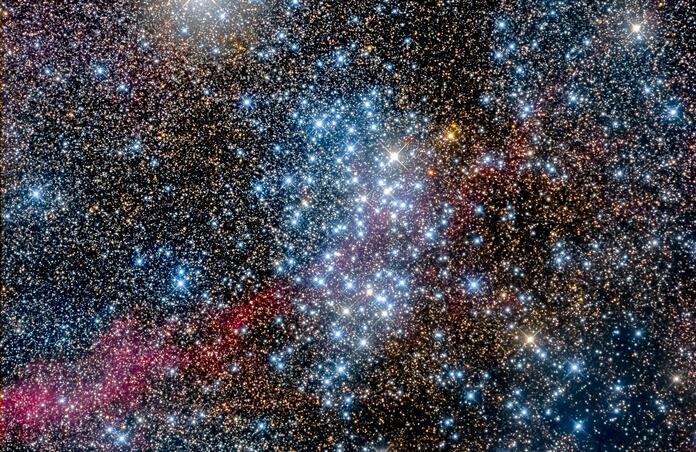The Difference Between Reflector Telescopes and Refractor Telescopes

(Image: NGC 3532 - also called the Wishing Well Cluster - by Jim de Lillo )
TelescopeLive houses a stable of both reflector telescopes and refractor telescopes.
What are the differences, and which is better?
Neither is better, per se, but they each have features that may make it better suited for a particular purpose.
They differ in the arrangement of the optical components. The optical chain in a refractor telescope is straight through the objective lens directly to the observing point (eyepiece or camera). This direct path minimizes some spherical aberration or coma, where stars are not perfectly round.
Refractors tend to be lighter and have smaller objectives or light-gathering power when compared to a reflector. When properly constructed and of high quality, the elements minimize chromatic aberration, or color fringing, often the bane of inexpensive refractors.
Refractors have incredible sharpness and contrast. They typically are employed for wide-field observing and imaging.
A reflector telescope is larger, heavier, and requires a robust mount. The optics consist of a primary mirror that functions as the objective lens and a secondary mirror that focuses on the camera/eyepiece. This secondary mirror is supported by thin vanes of metal called a spider.
These vanes are responsible for the diffraction spikes around stars. These spikes do not occur in a refractor and may be a deciding factor in choosing an instrument.
The field-of-view (FOV) of a reflector tends to be tighter, and the magnification greater than a refractor. This aspect is ideal for getting those “close-ups” of deep space objects.
@telescopelive has three refractor telescopes (and a Nikon lens) and six reflectors.
Try ‘em all!
This blog post was originally published in our Telescope Live Community.
The Community represents Telescope Live's virtual living room, where people exchange ideas and questions around astrophotography and astronomy.
Join the conversation now to find out more about astrophotography and to improve your observation and post-processing skills!
